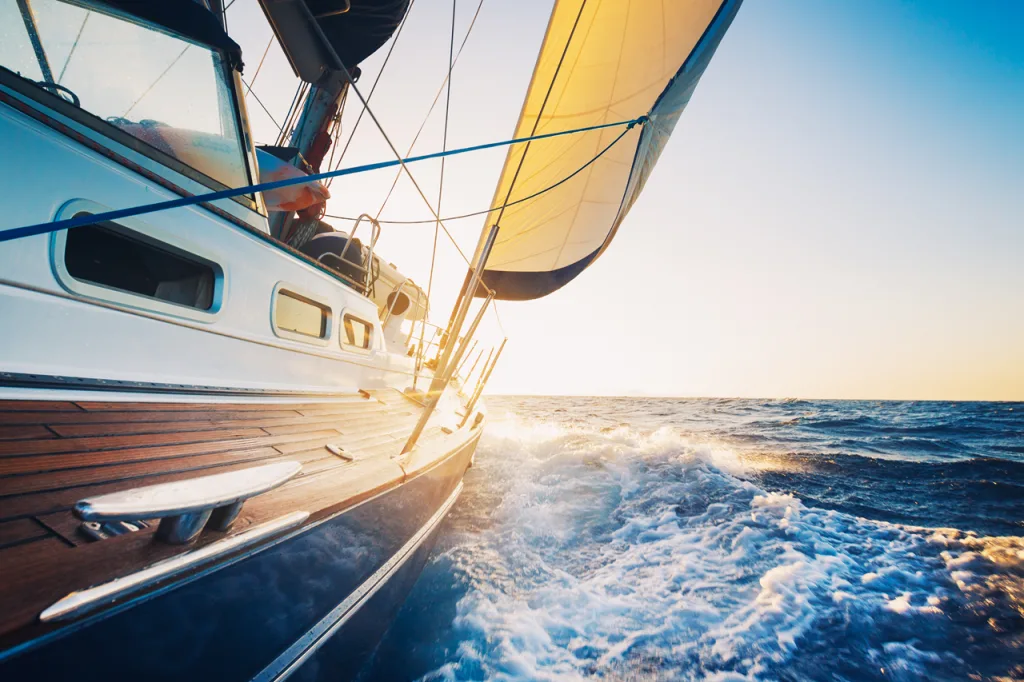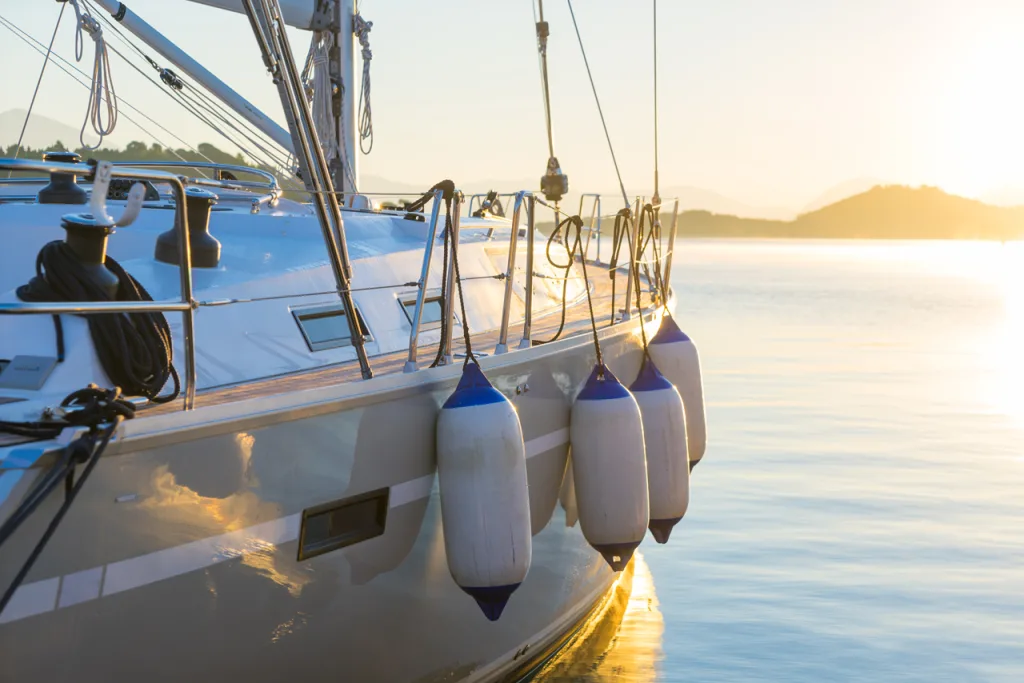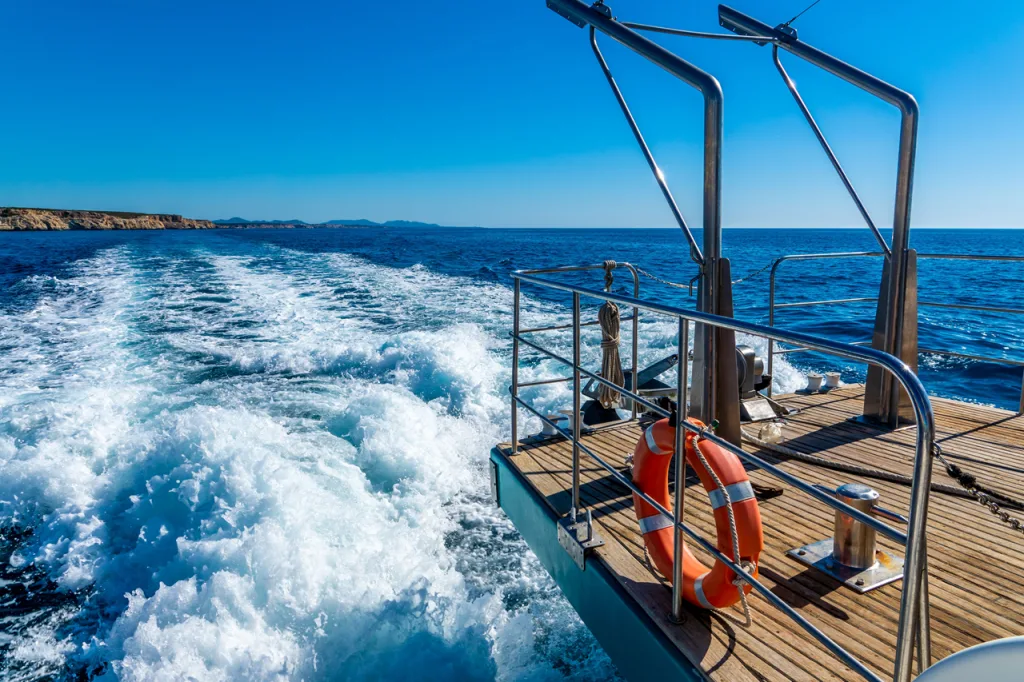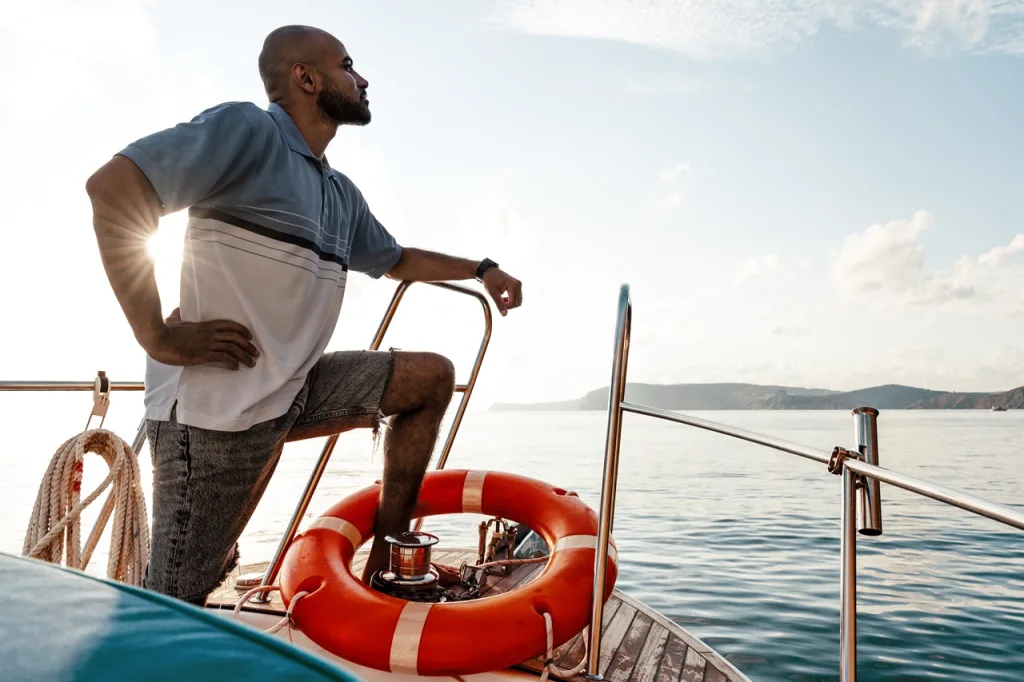
Navigating the vast seas of the maritime industry in the USA isn’t just about knowing how to steer your ship—it’s also about safeguarding your assets and crew with the right maritime insurance solutions. Did you know that marine liability insurance can be the difference between smooth sailing and a financial storm? In this rapidly evolving sector, having comprehensive protection has never been more critical. Let’s dive deep into why marine liability insurance matters and how it can secure your business interests in the ever-dynamic ocean of maritime commerce!
Understanding Marine Liability Insurance
In the world of maritime adventures, marine liability insurance stands as a beacon of security for businesses that brave the seas. But what exactly is this type of insurance, and why is it indispensable for those involved in maritime operations? Essentially, marine liability insurance is a specialized form of coverage designed to protect vessel owners and operators against third-party claims. These claims may arise as a result of bodily injury, property damage, or legal penalties related to the insured’s maritime activities.
Definition and Scope
Marine liability insurance isn’t your everyday coverage. Its unique design caters to the specific needs of the maritime industry, addressing risks that are not typically covered by standard liability policies. The scope of marine liability insurance extends beyond conventional liabilities. It includes damages arising from collisions, environmental pollution events, and even unforeseen circumstances that might endanger the financial stability of a maritime business. This robust insurance not only shields you from potential financial loss but also ensures that your operations can continue smoothly, knowing that you’re backed by comprehensive protection.
Key Differences from Other Types of Marine Insurance
At a glance, all marine insurances seem to play a similar protective role, but each serves distinct purposes. While cargo insurance covers goods in transit, and hull insurance focuses on the vessel itself, marine liability insurance casts a wider net. It’s primarily concerned with the legal responsibilities that could arise from your operations—be it an oil spill or a collision. For instance, the Protection and Indemnity (P&I) insurance under marine liability focuses on the more complex liabilities encountered in maritime activities. Unlike cargo or hull insurance, marine liability provides cover for a variety of incidents that range from damage to cargo and vessels to pollution liabilities.
Importance for Maritime Businesses
The importance of marine liability insurance cannot be overstated. For maritime businesses, the ocean is their office, and just like any business should mitigate risks, so should those navigating the seas. This form of insurance provides peace of mind, enabling shipowners and operators to focus on their core activities without the constant worry of potential claims looming over them. Imagine a scenario where a vessel accidentally damages another ship or leaks oil into the ocean; the financial repercussions could be devastating without the right insurance. Marine liability ensures that companies are not blindsided by costly legal claims—and can operate with confidence in the unpredictable marine environment.
Types of Marine Liability Coverage Available in the USA
Marine liability insurance comes with a variety of coverages tailored to meet the specific needs of different maritime enterprises. The diversity within these options highlights the versatility needed to cater to varying risks associated with marine operations. Here’s a closer look at the key types of coverage available in the USA.
Protection and Indemnity (P&I) Insurance
One of the most comprehensive forms of marine liability coverage is Protection and Indemnity (P&I) insurance. This insurance type is primarily designed to cover a wide array of third-party liabilities. For ship owners, P&I insurance acts as an indispensable safeguard against claims related to bodily injury, environmental pollution, wreck removal, and damage to cargo transported by the vessel. According to this guide on P&I coverage, P&I Clubs play a crucial role in offering mutual insurance that covers these complex liabilities.
Comprehensive General Liability (CGL) for Marine Businesses
While P&I insurance focuses on liabilities directly related to vessel operations, Comprehensive General Liability (CGL) insurance provides broader coverage for the business side of marine operations. This includes liabilities arising from slip and fall accidents at the company’s facilities, advertising liabilities, or even damage to rented premises. The CGL is essential for businesses seeking to protect assets that could be impacted by onshore activities.
Pollution Liability Insurance for Marine Operators
In today’s environmentally conscious world, pollution liability insurance is more critical than ever. It specifically covers liabilities arising from unintended pollution events that could damage marine ecosystems. Given the strict environmental regulations in the USA, having this type of coverage ensures compliance while protecting your business from substantial fines or cleanup costs. These policies are designed to cover expenses related to oil spills and other pollutive discharges that may occur in marine operations.
Hull and Machinery Insurance
Though not primarily a type of liability insurance, Hull and Machinery (H&M) insurance is worth mentioning as it complements liability policies by covering the damage to the vessel itself. It’s crucial for operators who want a comprehensive insurance strategy that includes both physical asset protection and liability coverage.
Chart Overview
| Type of Insurance | Primary Focus | Typical Coverage |
|---|---|---|
| Protection and Indemnity (P&I) | Third-party liabilities related to vessel operations | Personal injury, cargo damage, environmental cleanup |
| Comprehensive General Liability (CGL) | Business operations both onshore and offshore | Bodily injuries, property damages, advertising injury |
| Pollution Liability | Liabilities from environmental pollution | Oil spill cleanup, legal defense, fines and penalties |
| Hull and Machinery (H&M) | Physical assets coverage | Vessel damage due to collision or other disasters |
This comprehensive table offers a snapshot of the types of coverage available to maritime businesses and highlights the importance of selecting policies that serve specific operational needs. The right combination of these coverages ensures that maritime businesses are prepared to face any eventualities that the dynamic marine environment might present.
Costs and Factors Influencing Marine Liability Insurance Rates
Understanding the costs associated with marine liability insurance is crucial for any maritime business. This section delves into the various factors that influence these rates and provides insights into strategies that can help manage and potentially reduce insurance premiums.

Overview of Pricing Factors
Marine liability insurance premiums are influenced by numerous factors, each contributing to the overall cost. One of the primary determinants is the type of vessel being insured. For instance, cargo ships, passenger ferries, and oil tankers each carry different levels of risk and will have premiums reflective of that. Additionally, coverage needs play a significant role. Comprehensive policies covering a broad range of liabilities tend to have higher premiums than more limited policies.
Risk assessment is another critical factor. Insurers will evaluate the operational history of a vessel, incident records, and maintenance practices. A ship with a clean safety record and well-documented maintenance history might enjoy lower premiums compared to a vessel with prior incidents.
Impact of Environmental Regulations on Insurance Costs
The USA has stringent environmental regulations designed to protect its natural resources, especially along its coastlines. These regulations can directly impact insurance costs, particularly for pollution liability coverage. Companies operating in stricter regulatory environments may face higher premiums due to the increased potential for compliance-related claims. According to recent industry reports, penalties for breaches of environmental laws have been rising, thereby influencing the underwriting processes and costing structures.
Strategies to Manage and Reduce Insurance Premiums
Maritime businesses looking to optimize their insurance spend should consider the following strategies:
- Improvement of Safety Protocols: Implementing and maintaining robust safety protocols can significantly reduce risk and demonstrate to insurers a commitment to minimizing claims.
- Regular Training Programs: Conducting regular crew training programs ensures that everyone is updated on safety practices, which can decrease the likelihood of incidents.
- Investing in Modern Technology: Utilizing advanced navigation and hazard detection systems can help lower risks and potentially reduce insurance premiums by demonstrating proactive risk management.
- Comprehensive Maintenance Records: Keeping detailed maintenance logs can aid in demonstrating the consistently good condition of a vessel, leading to lower premium quotes.
- Bundle Coverages: Some insurers offer discounts when liability insurance is bundled with other marine insurance products like hull or cargo coverage.
By focusing on these strategies, maritime businesses can not only manage risks more effectively but also negotiate better rates with their insurers. Here’s a helpful resource from AmWins Group on managing marine insurance costs.
Regulatory Framework for Marine Insurance in the USA
In the U.S., the marine insurance industry operates within a complex legal framework. Understanding this framework is essential for maritime businesses seeking to comply with regulations and optimize their insurance coverages. This section explores the critical regulatory components that shape marine liability insurance policies.

Overview of the Legal Landscape
Marine insurance in the USA is primarily governed by a combination of federal laws and international conventions. Unlike other types of commercial insurance, marine insurance is significantly influenced by precedents set in maritime law, which often derive from historical guidelines established through centuries of navigation and trade. At the federal level, laws like the Jones Act and the Clean Water Act directly impact marine insurance, adding layers of regulation that shape the policies available to maritime businesses.
Key Regulatory Bodies and Their Roles
Several regulatory bodies play pivotal roles in overseeing marine insurance practices. Here are a few of the most influential:
- The United States Coast Guard (USCG): Primarily responsible for enforcing marine safety regulations, the USCG’s decisions and compliance requirements significantly impact how insurance policies are structured, especially regarding safety benchmarks.
- The National Oceanic and Atmospheric Administration (NOAA): As a key regulatory authority, NOAA provides guidelines that cover environmental protection and maritime operations, thus influencing pollution liability coverage.
- The Federal Maritime Commission (FMC): This body regulates international shipping in the USA, impacting how marine liability insurance is structured, particularly for businesses engaged in cross-border operations.
Understanding Compliance Requirements
Compliance with federal regulations is not just about adhering to laws; it’s about incorporating best practices that reduce risks and insurance costs. Maritime businesses must understand requirements that include periodic inspections, safety equipment mandates, and environmental safeguards. Non-compliance can result in hefty fines and increased insurance premiums, emphasizing the necessity of staying informed and up-to-date with legal obligations.
The integration of technology in managing compliance is growing. For instance, using compliance management software can help maritime businesses track regulatory changes, ensuring that they meet all necessary requirements to maintain their insurance coverage. The Marine Insurance Association provides valuable resources pertaining to regulatory requirements, which can be found here.
Benefits of Procuring Marine Liability Insurance in 2024
Marine liability insurance offers a wide array of benefits that are invaluable to businesses operating in the maritime sector. As the global maritime environment continues to evolve, the need for comprehensive coverage becomes more pronounced. Here, we delve into the key advantages of securing marine liability insurance in 2024.
Financial Protection from Lawsuits and Third-Party Claims
Marine liability insurance acts as a financial lifeline for maritime businesses facing potential lawsuits. From minor incidents to significant accidents at sea, the cost of legal claims and settlements can be overwhelming. For example, if your vessel collides with another or incurs damages leading to environmental pollution, you could face lawsuits amounting to millions of dollars. By having adequate liability coverage, these financial burdens can be transferred to the insurer, safeguarding your company’s assets and cash flow.
Security for Crew, Cargo, and Vessel
This form of insurance extends beyond just financial coverage. It represents a commitment to the safety and wellbeing of your crew, the security of your cargo, and the protection of the vessel itself. In the unfortunate event of an accident resulting in injuries or cargo damage, the insurance ensures compensation is provided, reinforcing the trust and reliability of your operations among stakeholders.
Enhancing Business Credibility and Operational Efficiency
In the competitive maritime industry, demonstrating comprehensive risk management strategies through marine liability insurance bolsters your company’s credibility. Clients and partners are more inclined to collaborate when they perceive that a business has reliable mechanisms to handle potential liabilities. Furthermore, knowing you are adequately covered allows you to focus on expanding operations without the hang-up of unforeseen risks. This peace of mind is crucial for improving operational efficiencies and enabling strategic growth.
Industry Case Study
A case in point is the 2021 incident involving an international shipping company operating along the U.S. East Coast. After a severe weather event led to a large oil spill, their marine liability insurance policy mitigated the immense cleanup costs and legal measures, allowing them to rebound without crippling financial strain. The incident reinforced the role of comprehensive liability coverage in crisis situations, underscoring its importance for any marine enterprise.
In conclusion, the primary advantage of marine liability insurance is the robust layer of protection it offers against the inherent risks of maritime operations. As the industry braces for changes in environmental regulations and operational challenges in 2024, having this coverage becomes an indispensable element of strategic planning.
How to Choose the Right Marine Liability Insurance Provider
Selecting the right marine liability insurance provider is a critical decision that can significantly affect the success of your maritime business. With numerous providers in the market, it’s essential to choose one that understands your specific needs and offers policies that effectively mitigate risks. Here’s what to consider when making this important choice.

Critical Factors to Consider When Selecting an Insurer
When evaluating potential insurance providers, consider the following factors:
- Experience and Expertise: Look for providers with extensive experience in the maritime sector. Insurers who specialize in marine logistics and have a deep understanding of the unique challenges this industry faces are better equipped to offer tailored solutions.
- Financial Stability: A provider’s financial health is crucial as it indicates their ability to fulfill claim obligations. Check ratings from agencies like A.M. Best or Moody’s to assess the financial strength and reliability of the insurers.
- Coverage Options: Ensure the provider offers a range of comprehensive coverage options that cater to all aspects of your marine operations, from crew and cargo protection to pollution and environmental liabilities.
- Global Reach vs. Local Support: Depending on your operational reach, consider whether you need an insurer with a global presence or one with robust local support to handle region-specific challenges and regulatory requirements.
Questions to Ask Prospective Insurers
When assessing insurers, have a list of questions ready to help gauge their suitability:
- What is your claim settlement process, and how long does it typically take?
- Can you provide case studies or references from similar maritime businesses?
- What types of risk management services do you offer alongside insurance coverage?
- How do your premiums compare with industry averages, and what factors influence these prices?
- What updates or improvements have you made to your policies to reflect current maritime regulations?
Tips for Assessing and Comparing Policy Options and Coverage Limits
Here are some pragmatic tips to ensure you choose the most appropriate marine liability insurance policy for your business:
- Compare Quotes: Obtain and compare quotes from multiple providers. Ensure you’re comparing similar coverages and limits to get an accurate picture of what each policy offers.
- Evaluate Deductibles: Higher deductibles might lead to lower premiums, but ensure they remain manageable in potential claim scenarios.
- Review Policy Exclusions: Carefully examine any exclusions listed in the policy to ensure there are no unexpected gaps in coverage that could leave your business vulnerable.
- Seek Professional Advice: Consider consulting with a marine insurance broker who can provide valuable insights and negotiation leverage to secure the best terms possible.
Choosing the right insurance provider involves a thorough analysis of your needs, risks, and the coverage landscape. With these considerations, you’ll be better equipped to select a partner who will support your business through both smooth and troubled waters. Here’s a helpful resource from Insurance Information Institute on choosing the right provider.

Conclusion
Navigating the waters of the U.S. marine industry requires more than just adept seamanship—it demands robust planning and risk management strategies. As we’ve explored in this comprehensive guide, marine liability insurance is a crucial component for safeguarding maritime businesses against the unpredictable nature of the oceanic environment. From understanding the essence and types of coverage to assessing costs and navigating the regulatory landscape, each element plays a pivotal role in preparing your business for potential challenges.
The benefits of securing such coverage—financial protection, crew and vessel security, and enhanced business credibility—reinforce its necessity for businesses aiming to thrive in 2024 and beyond. Selecting the right insurance provider further ensures that your operations are supported by tailored policies that align with your specific maritime risks.
Call to Action:
Now is the time to take proactive steps towards securing the right marine liability insurance for your business. If you’re ready to anchor your operations in safety and stability, consider reaching out to a specialized marine insurance broker who can guide you through the process and help customize your coverage to fit your unique needs. Staying ahead of the curve with comprehensive marine liability coverage not only protects your assets but also empowers your business to navigate future waters with confidence.
For more information and detailed resources on maritime insurance, the Marine Insurance Association offers a wealth of knowledge and assistance.
Thank you for embarking on this journey with us to understand marine liability insurance. Safe voyages and successful operations await those who are well-prepared!
Frequently Asked Questions (FAQs)
1. What is marine liability insurance?
Marine liability insurance protects maritime businesses against claims for bodily injury, property damage, or other liabilities that arise from their operations at sea. It shields owners and operators from potential legal and financial losses. Here’s a detailed guide on marine insurance.
2. Why do I need marine liability insurance?
You need marine liability insurance to protect your business from financial loss due to accidents, environmental damages, or injuries at sea. It’s essential for any maritime operation, ensuring your assets and reputation are safeguarded against unforeseen incidents.
3. Are there different types of marine liability insurance?
Yes, there are several types, including Protection and Indemnity (P&I) insurance, Comprehensive General Liability (CGL), and Pollution Liability insurance. These cover various aspects of marine operations, from crew safety to environmental protection. Check out this overview on marine policies.
4. How are marine liability insurance costs determined?
Costs depend on factors like the type of vessel, coverage needs, and risk assessment. Insurers look at past incident records, the type of operations, and specific environmental risks to set premiums. This resource on insurance costs explains more.
5. What are some ways to reduce marine insurance premiums?
You can reduce premiums by maintaining good safety practices, investing in training, and keeping thorough maintenance records. Bundling insurance policies may also offer discounts. Learn more about cost-saving strategies here.
6. How does environmental regulation affect marine insurance in the USA?
Strict environmental regulations can increase insurance costs as they require coverage for pollution and clean-up responsibilities. Compliance with laws like the Clean Water Act is crucial. The EPA’s website provides more details about environmental regulations.
7. What should I look for in a marine liability insurance provider?
Look for providers with experience in the maritime sector, stable financial ratings, and diverse coverage options. Comparing policy limits and customer service reviews is also helpful. Here’s a guide on choosing the right insurer.
8. Is pollution liability included in all marine insurance policies?
Not always. Pollution Liability insurance is a specific coverage that may need to be added separately depending on your operations and risks. Make sure to check your policy details or consult with your insurer for clarity. You can find more on this pollution insurance page.
9. What happens if I don’t have adequate marine liability insurance?
Without adequate insurance, your business faces significant financial risk from lawsuits, damages, and regulatory penalties. It could lead to severe economic strain or even bankruptcy in the case of major incidents.
10. Can marine liability insurance impact my business credibility?
Yes, having the right coverage can enhance business credibility and trust with clients and partners. It shows your commitment to risk management and responsible operations. Find out more about the benefits of liability insurance here.
Read More: Comprehensive Guide to Commercial Boat Insurance in the USA for 2024